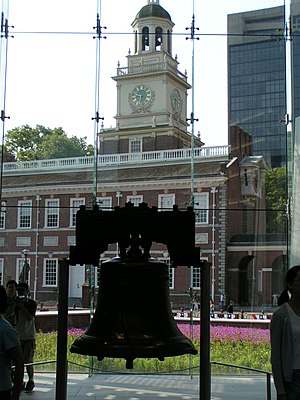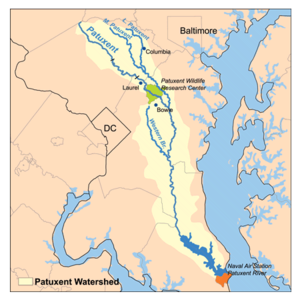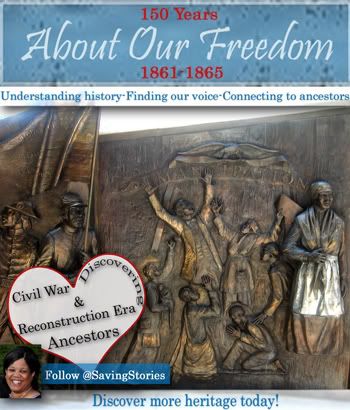As the slaves of Cliveden heard the whisperings about liberty which had to be present all around, I wonder how they felt and what they said amongst themselves about their own situation. Of all the study that I have done of the history of liberty and the symbols of freedom in Philadelpia, I never once found mention of the existence of slavery there. Thank you, Joe for bringing this history forward!
Robin Foster
About Our Freedom
By Joseph McGill, Jr. | Program Officer, Southern Office
Thursday, June 23, 2011 found me at Cliveden in Philadelphia, Pennsylvania. This stay came about as a direct result of a lecture that I gave about the Slave Dwelling Project at the National Preservation Conference that was held in Austin, Texas in October 2010. Immediately after the lecture, I was approached by Rick Fink, the Education Director at Cliveden, he extended the invitation to me at that time. The very next day, I unknowingly sat beside David Young, Executive Director of Cliveden, on the bus ride he confirmed the invitation.
 Image via Wikipedia Cliveden is an historic site owned by the National Trust for Historic Preservation and located in the Germantown neighborhood of Northwest Philadelphia. Built as a country house by attorney Benjamin Chew, Cliveden was completed in 1767 and was home to seven generations of Chew family members. Long famous as the site of the Battle of Germantown in 1777, as well as for its elegant architecture and furnishings, new research is revealing a troubled past marked by slavery and another kind of struggle for freedom.
Image via Wikipedia Cliveden is an historic site owned by the National Trust for Historic Preservation and located in the Germantown neighborhood of Northwest Philadelphia. Built as a country house by attorney Benjamin Chew, Cliveden was completed in 1767 and was home to seven generations of Chew family members. Long famous as the site of the Battle of Germantown in 1777, as well as for its elegant architecture and furnishings, new research is revealing a troubled past marked by slavery and another kind of struggle for freedom.
In addition for an opportunity for me to expand the Slave Dwelling Project to the north, the staff at Cliveden saw this as an opportunity to expand a program called “Cliveden Conversations”. "Cliveden Conversations," sprouted from a recent discovery of documents detailing slave ownership by the affluent family of Chief Justice Benjamin Chew. The Chew Family Papers have opened the door to new discussions about how slavery has affected modern race relations and community in Germantown.
As followers of the Slave Dwelling Project became aware that Cliveden was one of the places that I would stay, some would always be surprised for various reasons. Cliveden did not fit the mold of any of the previous stays. It did not have a cabin; it was not a plantation; most of all, it was not in a southern state.
 |
| Cliveden, provided by Cliveden staff. |
My arrival into Philadelphia was uneventful and I was picked up from the airport and transported to Cliveden by David Young. I often use the term “house on the hill” to describe the architecture that we as Americans are most interested in preserving. Cliveden is the epitome of that phrase. It is not hard to visualize that when Cliveden was completed in 1767 it stood prominently on a hill in isolation. Any one approaching would have been awed by its significance. The two story slave dwelling, the two story carriage house and any other out building would have accented the wealth of the Chew family.
 |
| Cliveden, provided by Cliveden staff. |
I got a tour of the slave dwelling and the Cliveden Mansion from Rick Fink. It is amazing how the architecture of the big house allowed slaves to labor within it walls and gave the home owner the ability to isolate that labor from visitors when necessary. I only needed to see the first floor of the slave dwelling to know that was where I would sleep. This room had less amenities than others in the house although an electrical light, electrical outlets and a radiator made it immediately evident that the building evolved and was a residence far beyond the abolition of slavery in the state of Pennsylvania. The rest of the evening included two media interviews, a Germantown Coalition reception and dinner at McMenamin’s Tavern.
 |
| Cliveden, provided by Cliveden staff. |
The sleep in the dwelling was peaceful. I expected to hear sirens and other noises that a city would have to offer, but I heard none of those things. The next morning, through the window that I left open, I heard the sound of soothing rain falling on the trees. When I attempted to go to the bathroom, I set off the house alarm. I immediately called David Young for instructions which did not work. David assured me that he would call the alarm company and that he was on his way to the site. As thoughts of Rodney King ran through my mind, I parked myself in one spot and waited for staff or the police to arrive. Luckily, staff showed up and the police did not. After all of that drama, I then mustered the courage to explore the upstairs of the dwelling. The upstairs rooms contained further evidence that the dwelling had evolved over time. A bathroom with indoor plumbing and closets were all indications that the dwelling was lived in far beyond the ending of slavery in Philadelphia. Not having a flashlight, I was incapable of exploring the attic.
That day, I got several bonuses. I got to visit Walter Gallus, Director of the Philadelphia Field Office for the National Trust for Historic Preservation, and I had lunch with him. His office is located directly across the street from Cliveden. A few days prior to coming to Philadelphia, I made contact with a first cousin who I had not seen in decades. Once we worked out the details of the matter, he and two of my aunts who I had also not seen in decades showed up at Cliveden. Hanging out with them in the slave dwelling was a great time for us to reminisce about family members who are no longer with us on this earth.
My participation in “Cliveden Conversations” was interesting. I altered my presentation to include those former slave dwellings I stayed whose owners still interact with the descendants of the people who were enslaved at the site. The presentation proved appropriate for Cliveden’s goal of telling more of the story of the people who were once enslaved there. I was told by Cliveden staff that the crowd was the largest ever for “Clivden Conversations.” The question and answer period would have gone longer had we let it. After the group dispersed, a few of the participants joined me in the slave dwelling for a bonus question and answer period.
 Image via WikipediaIndependence Hall, the Liberty Bell, the City of Brotherly Love, these are all things we associate with the city of Philadelphia. I find it ironic that the purpose of my last stay in Philadelphia was to highlight that peculiar institution that was the opposite of all of those things. I commend Cliveden’s staff for taking the high road in this matter by engaging the public and seeking their input in how they should move forward in telling the stories of all the people who were involved. The Cliveden experience has given me a better understanding of how slavery existed in northern states.
Image via WikipediaIndependence Hall, the Liberty Bell, the City of Brotherly Love, these are all things we associate with the city of Philadelphia. I find it ironic that the purpose of my last stay in Philadelphia was to highlight that peculiar institution that was the opposite of all of those things. I commend Cliveden’s staff for taking the high road in this matter by engaging the public and seeking their input in how they should move forward in telling the stories of all the people who were involved. The Cliveden experience has given me a better understanding of how slavery existed in northern states.
 We lived in one house that was a little bigger, but we only lived in half of it because the other half was torn down. This house was billed off the ground and had a big hole in the floor where you could see the snake underneath.
We lived in one house that was a little bigger, but we only lived in half of it because the other half was torn down. This house was billed off the ground and had a big hole in the floor where you could see the snake underneath.









































